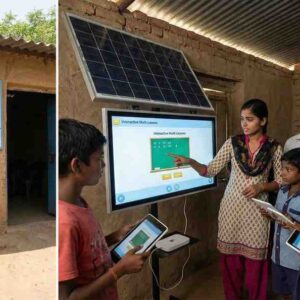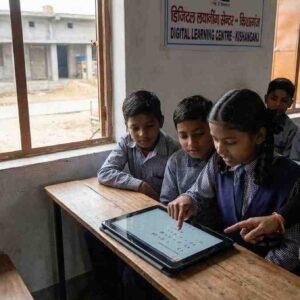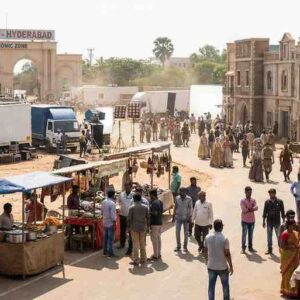Economic Inequality and Infrastructure Issues Take Center Stage in 2025 Polls
Mumbai, India:TheBrihanmumbai Municipal Corporation (BMC)elections in 2025 are set to be a defining moment for Mumbai, as the urban divide between luxury skyscrapers and sprawling slums shapes the political narrative. Representing over12 million residents, the BMC, India’s richest municipal body with an annual budget exceeding ₹45,000 crore, faces the challenge of addressing stark socio-economic disparities while delivering equitable development.
A Tale of Two Cities
Affluent Mumbai:
- South Mumbai and other upscale localities demand better infrastructure, seamless public transport, and sustainable urban planning to support their fast-paced lifestyles. Issues like pothole-riddled roads and flooding during monsoons remain critical concerns.
Marginalized Mumbai:
- With over 42% of the population living in slums, areas like Dharavi, Mankhurd, and Govandi face inadequate housing, poor sanitation, and limited access to clean water. Healthcare and education facilities for slum dwellers are key demands, intensifying the call for inclusive governance.
Major Political Players and Promises
Shiv Sena (UBT) and the Sena-BJP Rivalry
- The Shiv Sena (UBT) faction, led by Uddhav Thackeray, emphasizes community-based initiatives and welfare schemes, including slum redevelopment and housing rights.
- The BJP, on the other hand, highlights its alignment with central government initiatives and promises a ₹10,000 crore infrastructure upgrade, focusing on metro rail expansion and clean energy projects.
Congress and NCP:
- The opposition parties aim to capitalize on grievances over unfulfilled promises, proposing comprehensive plans for affordable housing and slum rehabilitation.
Key Issues in the BMC Elections
1. Affordable Housing:
- Mumbai’s housing crisis remains one of the most pressing issues, with nearly 50% of the population lacking access to formal housing. Slum redevelopment projects and policies like the Pradhan Mantri Awas Yojana (PMAY) are under scrutiny.
2. Environmental Sustainability:
- With rising sea levels and extreme weather events, sustainable infrastructure, mangrove conservation, and effective waste management are urgent concerns.
3. Public Transport and Traffic Management:
- Despite metro expansions, congested roads and unreliable local trains persist as pain points for daily commuters.
4. Healthcare Disparities:
- Slum areas report significantly higher rates of malnutrition and disease. Public health spending by the BMC is expected to be a focal point of manifestos.
Voter Sentiment and the Urban Divide
A recent survey by theCentre for Monitoring Urban Governance (CMUG)shows that64% of Mumbai votersfeel the city’s infrastructure has failed to keep pace with its economic growth. Younger voters, especially those under 35, are prioritizing issues like climate resilience, affordable housing, and better job opportunities.
What’s at Stake?
The BMC elections are more than a fight for control over Mumbai’s civic governance; they represent the intersection of urban aspirations and grassroots needs. As political parties battle for the trust of an increasingly aware and diverse electorate, the results will set the tone for the city’s future development.
The election outcome will reflect not just the political will but also the collective hopes of a metropolis striving to bridge its glaring divides.










